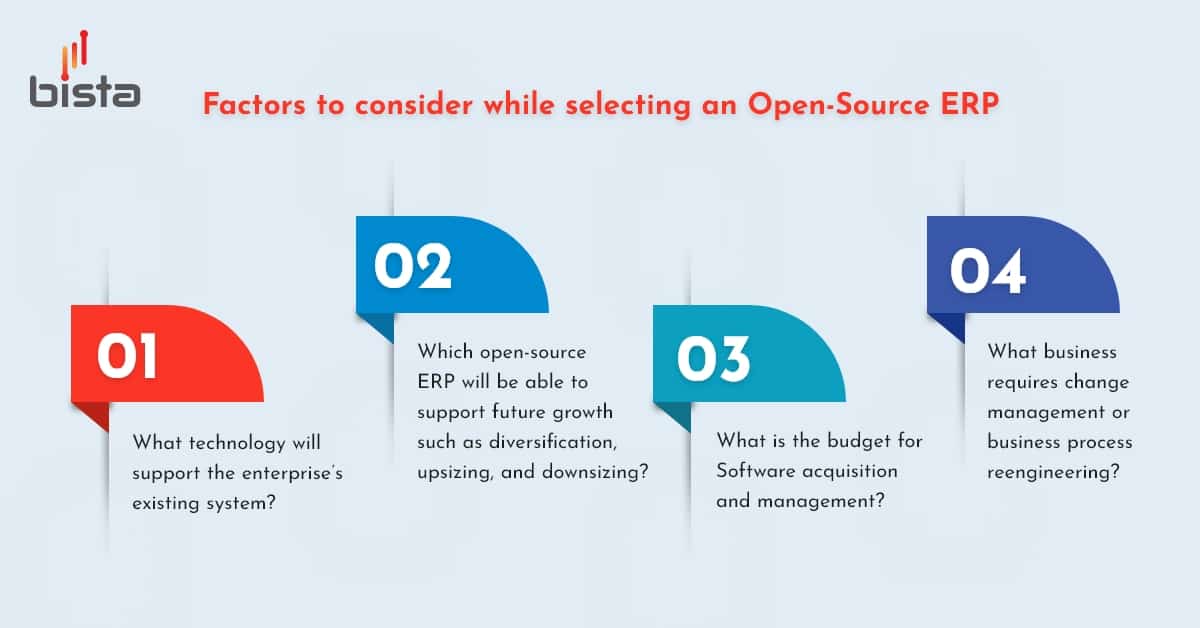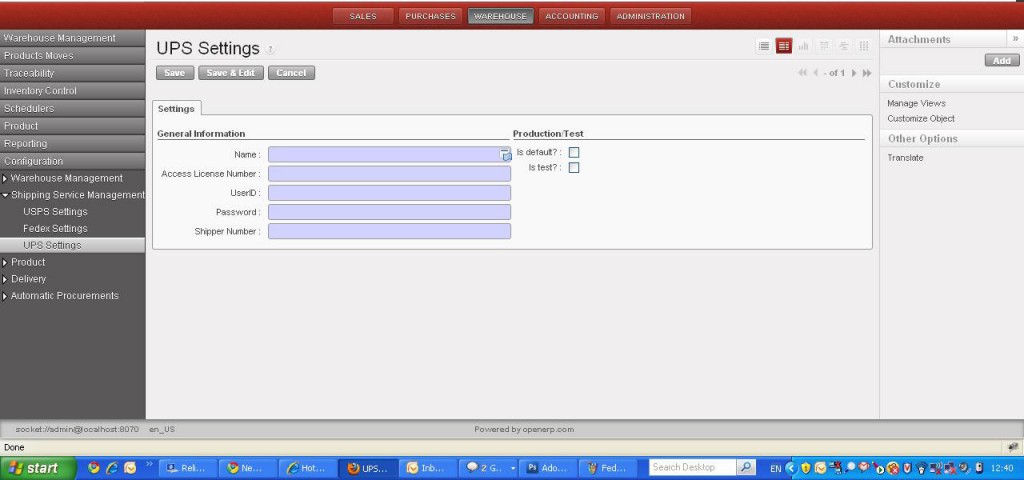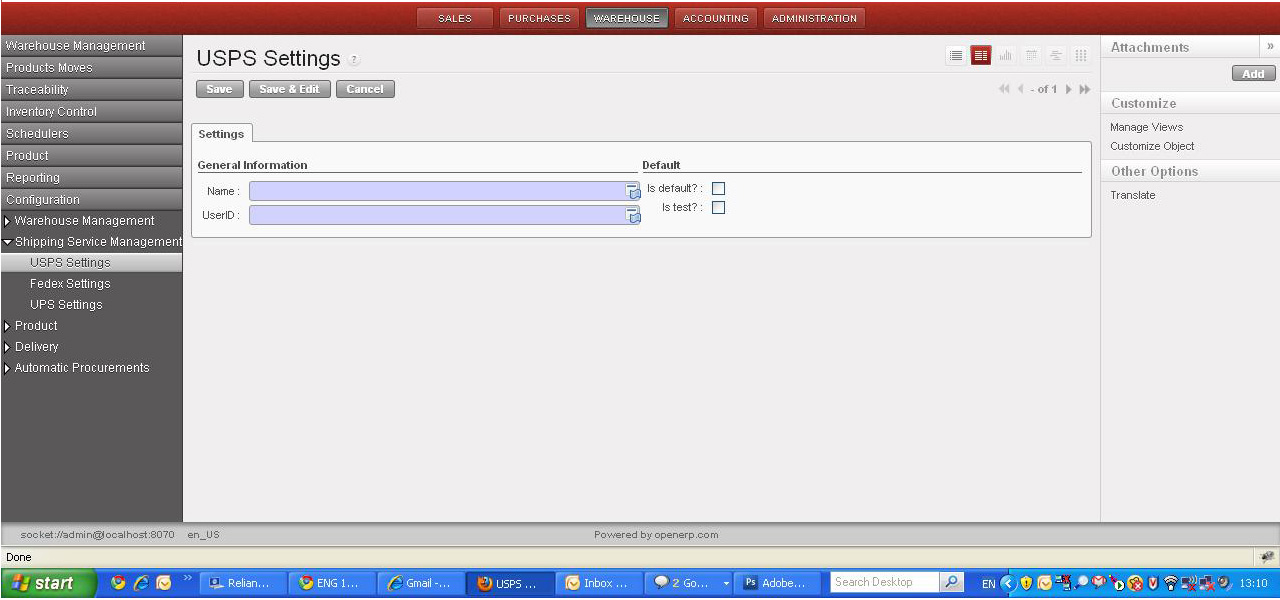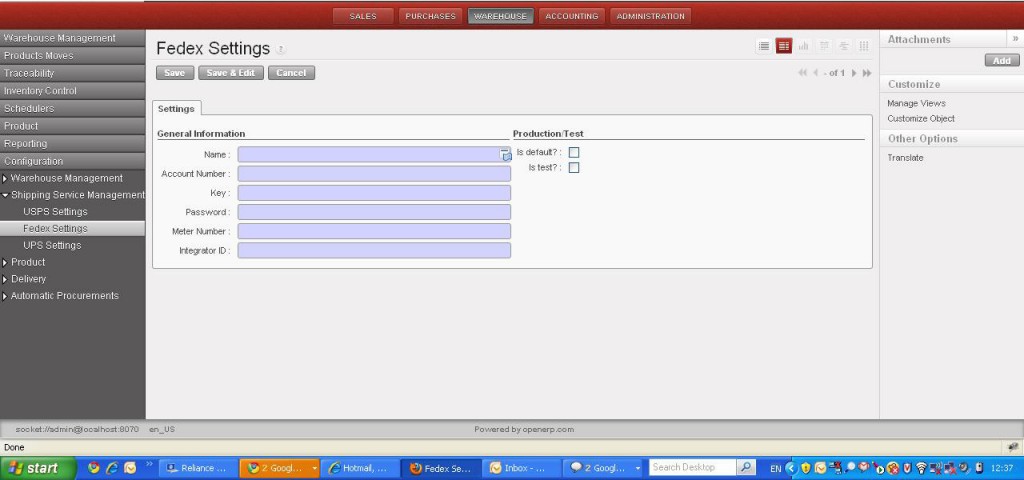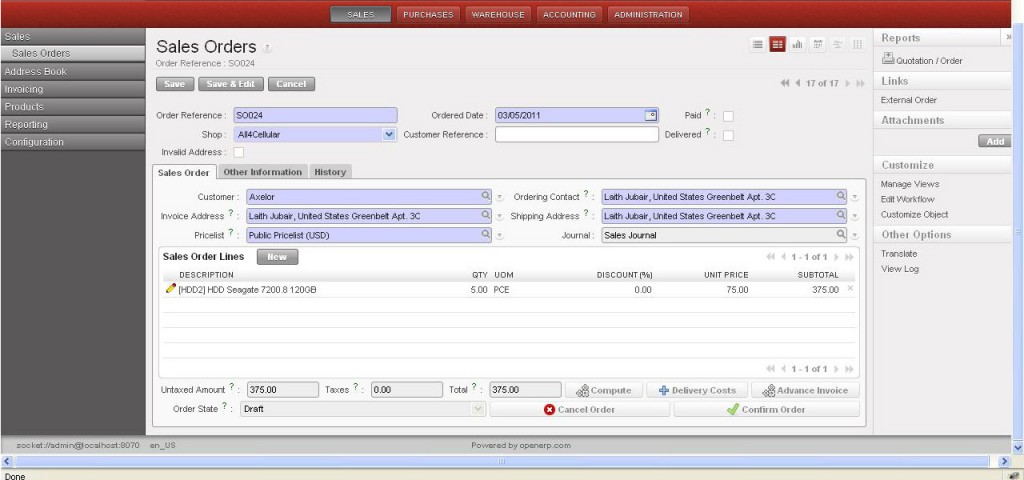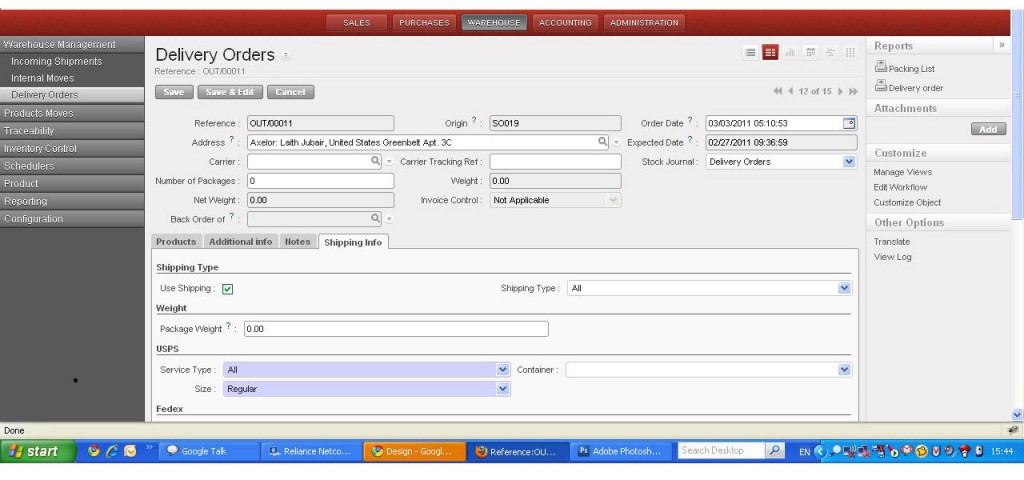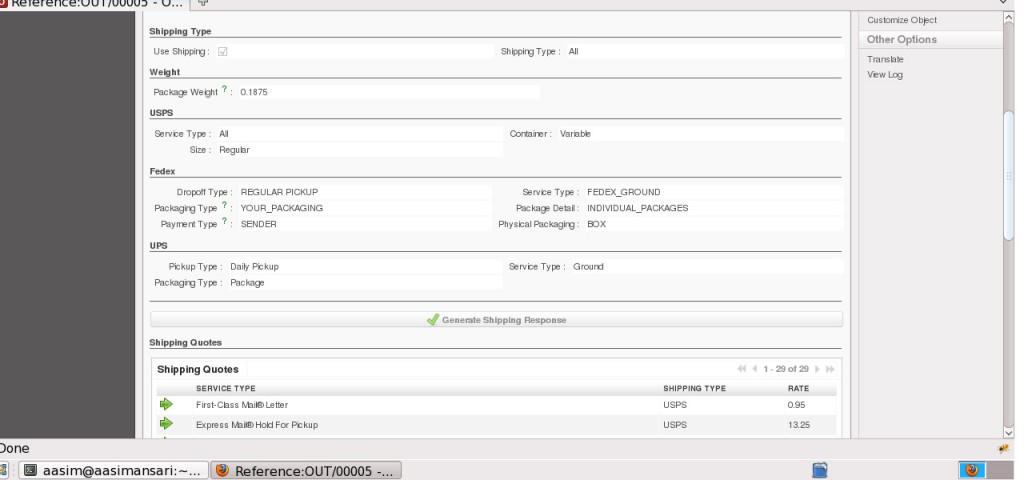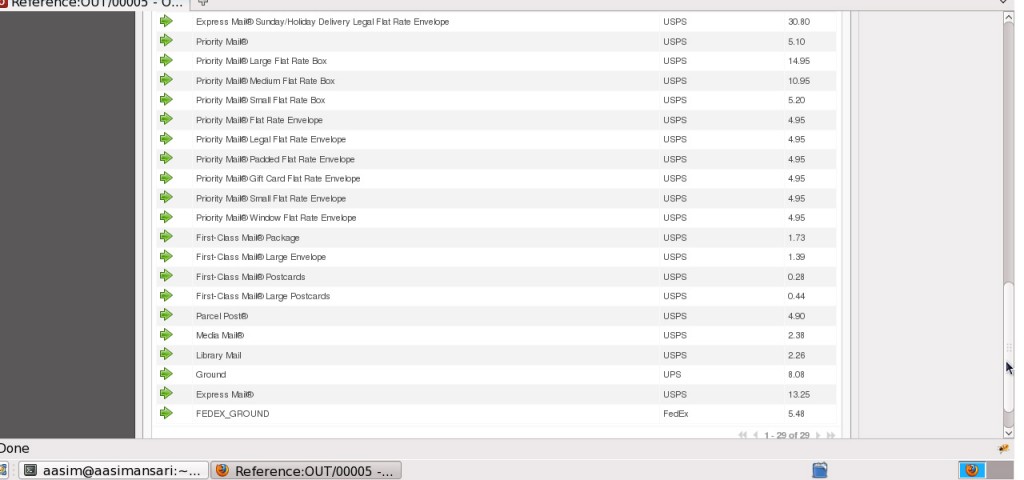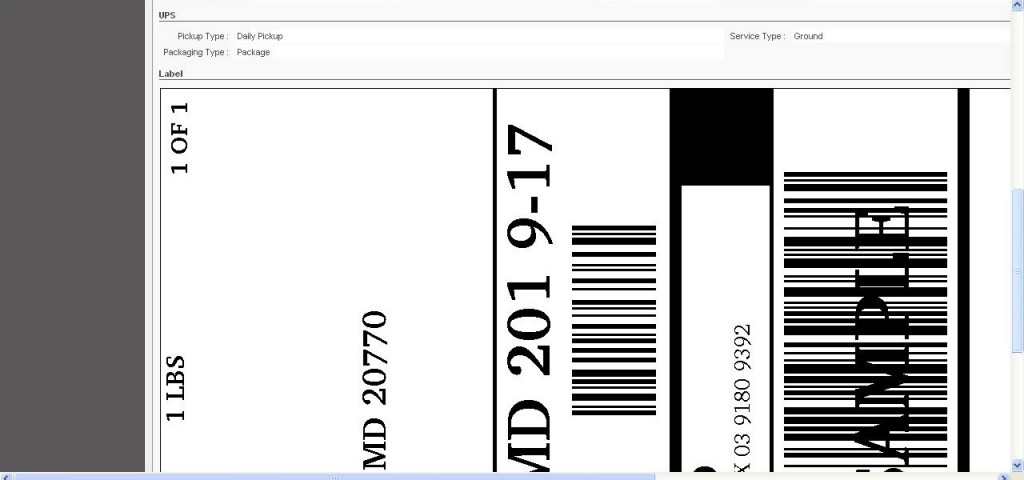ERP eCommerce integrated software
We all know that today Internet is getting bigger and bigger day by day across the world, people started searching for products and services with the help of the internet, the Incoming year this would be huge as the initiation of buying of any products and services will start from the Internet. Also, we have seen that before buying any products people searches the review on respective forums or put status messages on Facebook and other social media. This phenomenon is called by various names such as online buying, website, electronic commerce, e-business, e-commerce, online stores etc.
There are any online stores available on Internet today which provides best deals in different products and services whether it is electronic goods or fast moving goods. There are websites such as eBay.com, Amazon.com, Alilbaba.com which connects buyers and seller to assist with the business (Externally). And to assist business internally we all know that the activities such as selling & marketing consist of various backend such as accounting, CRM, Warehousing, Inventory etc. Use of ERP or business software is a must.
Our offering of Business software / ERP software integrated with your eCommerce website make simpler your operations and selling of goods and services. eBay, Amazon Sellers who are looking out for a single Business Application integrated with the eCommerce, products, inventory, warehouse etc can take the advantage of this software as its a packaged offering which integrates with your shipping system such as UPS, USPS, FedEx, web-store, eCommerce websites.
About Our Package offering
This packaged offering is an integration between your e-commerce website using Odoo (previously known as OpenERP) one of the leading Open source ERP software which consists of more than 500+ modules
What is the Need of this Packaged offerings:
We are offering this package of Odoo and eCommerce integration because of the problems faced by the eCommerce Sellers which is stated below:
- Having a single back-end system to process orders for eBay stores, multiple Magento webstores, osCommerce webstores, Amazon MarketPlace stores etc.
- Be able to have a single system to manage inventory & warehousing for all the multiple sales channels in one system.
- Also to be able to configure advanced Inventory rules for the various webstores.
- Have a full-fledged warehousing system integrated with UPS, USPS and FedEx.
- To have a fully-featured accounting system integrated with the Order processing and Receivables & Payables, not having to do manual re-entry into Quickbooks.
- Handle Purchasing from the same system and set advance stock rules and pricing policies.
- Handle Returns processing from the ERP system.
- Get Reports & Analytics about the performance of various Products, Categories, and Stores etc.
- Be able to handle a multi-company scenario in a seamless fashion.
- Be able to handle multiple currencies.
Advantages of moving to an ERP system:
- Integration of eCommerce with ERP system provide eCommerce Sellers to have an integrated and consolidate view of their businesses
- Seller can manage the entire operation with this single system
- This system helps you to increase the Inventory, Warehousing & Accounting operations by having all operations managed from a unified system.
- Eliminate duplication of efforts which normally happened during handling multiple CMS systems, Accounting & Inventory software.
- Configure advanced inventory & stock rules to improve profitability.
- Handle the distinct operations of multiple companies, yet have a high-level view of the performance of your business.
The above eCommerce integration with Odoo is currently supported for Magento, Other platforms are also supported as per the requirements.
other advantages of this package software is that it is built on Open source platform which gives you an advantage of unlimited users, cost effectiveness, further future modification is possible and much more.
You can have a check onto the features and pricing of this e-commerce ERP package at www.bistasolutions.com
For Pricing and Online demo, kindly contact sales@bistasolutions.com



